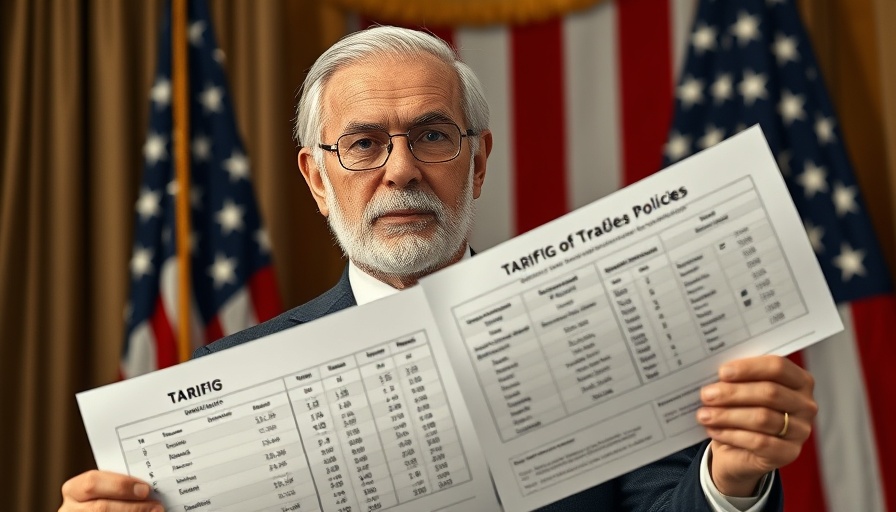
Trump's Tariffs Spark Controversy Worldwide
Recent moves by President Donald Trump to impose a 10% tariff on all imports to the United States have triggered a wave of reactions from global leaders, highlighting the complexities of international trade dynamics. Trump’s tariffs, which exclude key trading partners such as Canada and Mexico, aim to bolster American economic interests but also raise significant concerns among other nations.
The Canadian Response: A Call for Solidarity
Canadian Prime Minister Mark Carney expressed cautious optimism despite the tariffs. “While we have preserved key elements of our relationship, the continued tariffs on steel, aluminum, and fentanyl remain a point of contention,” he stated. Carney emphasized Canada’s commitment to countermeasures aimed at protecting workers, reinforcing the G7's collective economic strength. This statement underscores a trend where nations are not only reacting defensively but are also looking for ways to unify in the face of protectionism.
Brazil's Perspective: Economic Regret
In stark contrast, the Brazilian government expressed disappointment over the U.S.'s tariff decisions. “The imposition of additional tariffs on Brazilian exports doesn’t just hurt our economy; it strains diplomatic relations,” noted a statement from the Brazilian Foreign Ministry. This sentiment echoes the fears of many countries that such unilateral measures can disrupt not only trade but also the underlying international cooperation that benefits all parties involved.
Global Economic Implications: What's at Stake?
The implications of these tariffs extend far beyond immediate trade relationships. Economists warn that an escalation in trade barriers can lead to a slowdown in global economic growth. For investors, this presents both risks and opportunities in various markets. As tariffs affect price levels and consumer behavior, sectors such as construction, technology, and manufacturing could experience varying levels of impact, altering investment strategies.
Future Outlook: Navigating a Tariff-laden Landscape
Looking ahead, the tariff policies set forth by Trump could reshape investor strategies significantly. With concerns regarding inflation and supply chain management growing, investors might gravitate towards diversified portfolios featuring stocks that can weather the increased tariffs. Stocks in sectors such as utilities and consumer staples may gain importance, providing a buffer against global trade uncertainties.
Counterarguments: The Case for Increased Tariffs
While many leaders condemn the tariffs, there are voices within the U.S. advocating for these protectionist measures as a means to revitalize domestic industries. Proponents argue that unfair trade practices from other nations have marginalized American workers for too long, and that these tariffs may be a necessary step towards more equitable trade terms. This perspective invites a broader conversation about the implications of trade policies on domestic versus international priorities.
Utilizing Insights: Evaluating Your Investment Strategy
The current tariff situation illustrates a critical lesson in investing: adaptability is key. As markets react to policy changes, employing strategies such as risk management in investing and portfolio diversification can mitigate potential losses. Investors should remain informed about the evolving landscape to make educated decisions regarding asset allocation, particularly in response to shifts in international trade dynamics.
Conclusion: Stay Informed and Prepared
As the repercussions of Trump's tariffs unfold, it’s essential for investors and everyday citizens alike to stay informed and ready to adjust their strategies. The landscape of global trade continues to evolve, with new opportunities and challenges arising for everyone. Following these developments closely will be crucial in navigating the uncertain waters ahead.
 Add Row
Add Row  Add
Add 



Write A Comment